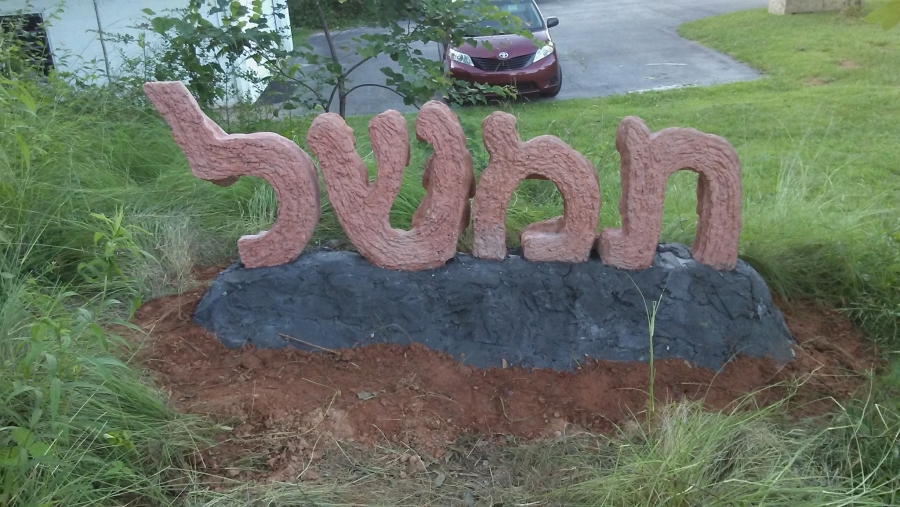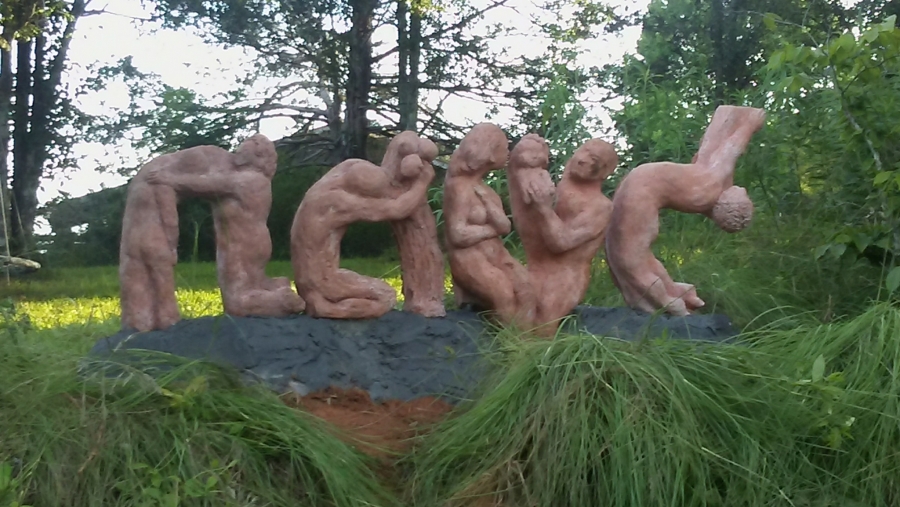Timshel

concrete, 70 X 180 X 40 cm, permanently installed in the Rensing
Center, Pickens, South Carolina, USA, a community which is committed to
helping individuals express their humanity and creativity.
Timshel = Thou mayest.
As a former biologist and a recovering Calvinist, I find it hard to defend the
idea that humans have free will. After all, our behaviors are controlled by
powerful, evolutionarily/genetically-programmed predilections. And maybe, just
maybe, there is some universal master plan that we can’t comprehend - a divine
plan or the laws of physics.
But I came of age reading Camus, Emerson and Thoreau and, yes, paying attention
to American self-help guides like Tony Robbins; these philosophies compel me/us
to take very seriously the idea of individual accountability.
It’s clear that uncertainties regarding free will are not new. Our Bronze Age
ancestors were concerned by the same issue. In Genesis 4:5, the ancient writers
depict their concept of a Supreme Being whose interaction with humans starts
with human agency; Cain is instructed on how to live his life right and is
told, “Thou mayest confront sin; it’s up to you, buddy”.
(It is also instructive to consider that the word normally translated as “sin” or "disobedience" has been rendered as "ignorance" by some theologians.)
John Steinbeck’s novel East of Eden develops around the translation of the
Hebrew word “timshel” as “thou mayest”, rather than the two common versions
“thou must” (a command) or “thou will” (a prediction). “Thou mayest” means the
way is open, and there is also the option that “thou mayest not”.
I hope that this sculpture will remind observers to be honest with themselves
regarding their personal understanding of free will.
This project has been liberating for me because I had never made a sculpture in
which I did not feel compelled to be realistic. Instead, I let the backsides of
the Hebrew characters of timshel suggest the poses, dimensions and
characteristics of human figures as they endeavor to make the most of their
agency - individually and in community, through work, play, creativity and
family.

Find out more in 100 People who deserve monuments


